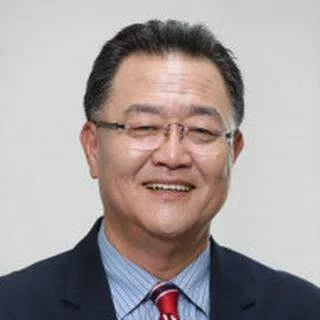China needs to change its understanding of South Korea's stand
With South Korea working on bilateral and multilateral international relations, especially with the US and Japan, it is perhaps unsurprising that China is not quite at ease with South Korea's stand. Recent comments by Chinese ambassador to South Korea Xing Haiming implying that South Korea's pro-US stance will not lead to a good outcome has raised hackles in South Korea. Academic Kang Jun-young tells us more.
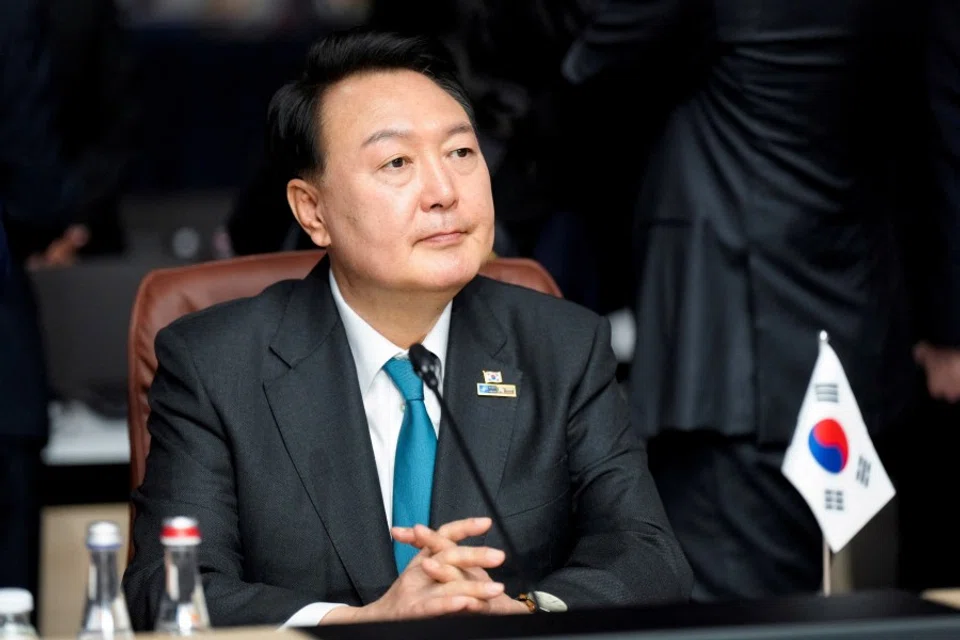
Just when it seemed like the Yoon Suk-yeol administration in South Korea had overcome the repercussions of the THAAD missile system incident and was ready to embark on refreshing its relationship with China under President Xi Jinping's third-generation leadership, another obstacle has come up.
At a session with South Korea's opposition leader Lee Jae-myung, Chinese ambassador to South Korea Xing Haiming criticised South Korea's foreign policy, leading to an uproar among South Korean politicians from both camps as bilateral relations hit another bump.
Antagonising remarks
Ambassador Xing's remarks included comments that "those who bet on China's defeat [in the US-China conflict] will surely regret it later" and that South Korea does not understand Xi's "China dream", and other apparent admonishments. The remarks reiterated that North Korea had already rejected the earlier "freeze-for-freeze" proposal for the US and South Korea to end their joint military exercises in exchange for North Korea ending its nuclear and missile tests; it also criticised South Korea's talk of "[preserving] peace and stability in the Taiwan Strait" as interfering with China's domestic affairs.
Xing ignored South Korea's efforts and position which described China as "a key partner for achieving prosperity and peace in the Indo-Pacific region" in its Indo-Pacific Strategy released on 29 December 2022. He also attributed the country's continued trade deficit with China to South Korea's decoupling from China, pushing all responsibility to the South Korean government's tilt towards the US, and seemingly threatening South Korea to adjust its foreign policy.
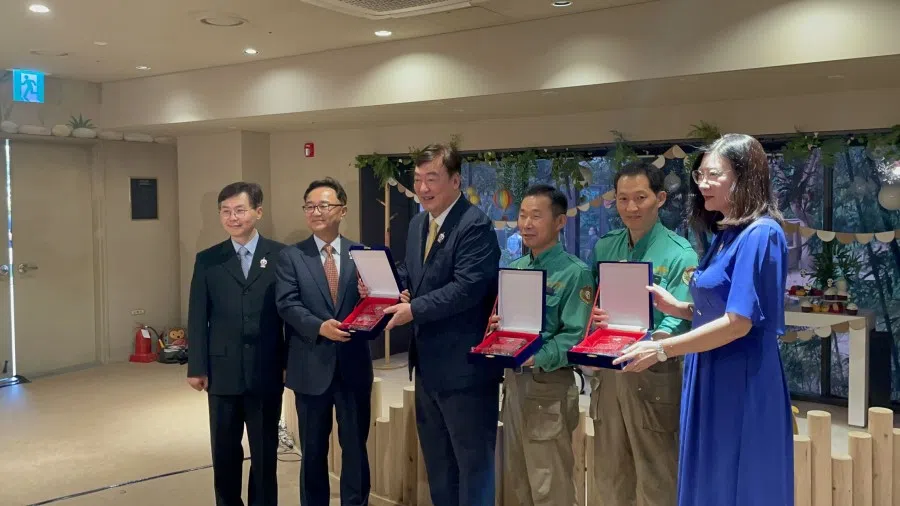
The South Korean government was incensed by the Chinese ambassador's comments, calling it a direct interference with its foreign policy and an attempt to intervene in its domestic politics. It felt that the remarks violated the Vienna Convention governing diplomats' duties including promoting friendly relations, and the South Korean foreign ministry summoned Xing to strongly protest his comments and requested the Chinese government to "deal with the matter appropriately".
However, the Chinese foreign ministry replied that it was part of Xing's job and he was not wrong; on the contrary, in turn, it also summoned South Korea's ambassador to China to lodge a complaint. So began an untimely diplomatic tit-for-tat.
... after a year of observation, South Korea's foreign strategy has not been what China expected, and this is a signal that China is switching to exerting pressure.
Anxious China
The incident is no simple matter, because it accurately reflects the Chinese government's understanding of South Korea.
While the tone adopted by each Chinese ambassador to South Korea may differ, what is said is definitely not their personal view. The crux of the incident lies in China's worries and displeasure over South Korea's foreign policy.
Specifically, China is edgy over the Yoon administration strengthening its alliance with the US and furthering three-way cooperation with the US and Japan, in its bid to ensure peace and stability on the Korean peninsula. In other words, after a year of observation, South Korea's foreign strategy has not been what China expected, and this is a signal that China is switching to exerting pressure. Evidently, China is ramping up its wolf warrior diplomacy to put pressure on South Korea through public sentiment and psychology.
In particular, China is strongly opposed to The Washington Declaration and its proposal of the establishment of a Nuclear Consultative Group to tackle the North Korean nuclear issue, as well as talk of "preserving peace and stability in the Taiwan Strait", from the South Korea-US summit in April.
Also, in November 2022, South Korea, the US and Japan reached an agreement in Phnom Penh to share North Korean missile data in real-time, and committed to deepen cooperation at the G7 Summit in May 2023, which has made China even more nervous. On 27 May, the US-led Indo-Pacific Economic Framework established a supply chain council, from which China might be excluded. And with South Korea's upcoming term as a non-permanent member of the UN Security Council, China is even more anxious.
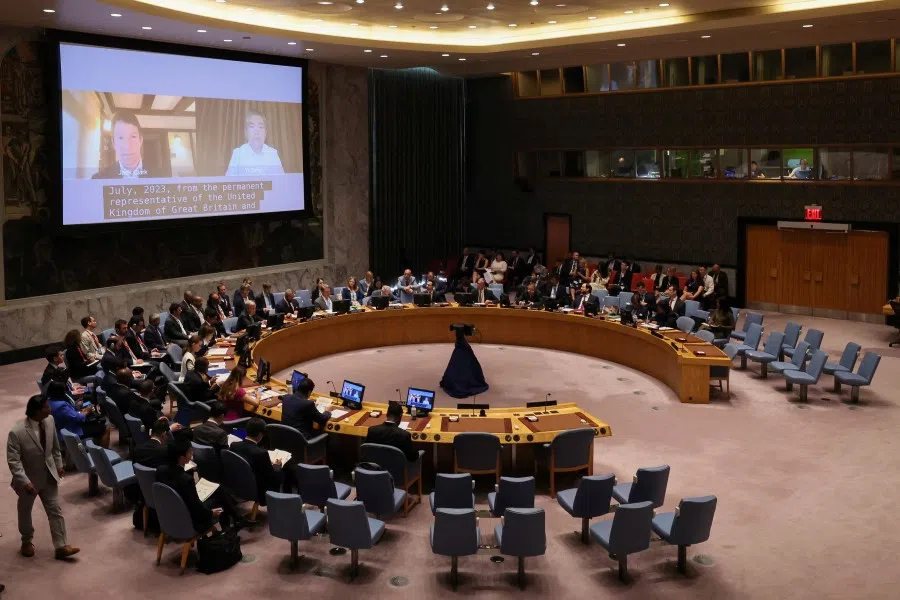
Now, as South Korea has a good chance to grow its international influence and move closer towards its target of becoming a global hub, if China does not stop South Korea's tilt towards the US, its aim to play a constructive role in the Korean peninsula would be meaningless. However, China also needs to change its understanding of South Korea's position and situation.
China has always viewed South Korean policies as dependent on the South Korea-US alliance, which is a one-sided and arbitrary assessment.
Understanding South Korean position
The Yoon administration has based itself on universal values and international norms to lay out its diplomatic goals of seeking freedom, peace and prosperity for the world. Besides, all nations face two core strategic concerns for survival: ensuring national security, and sustainable economic development targets.
South Korea's current government feels - at least in terms of security - that the previous administration's approach of communicating directly with North Korea and waiting for China to play its part has not borne fruit. To ensure its security, it has clarified its intention to strengthen its alliance with the US and highlight its trilateral cooperation with the US and Japan.
However, China views this as South Korea leading the US strategy of pressuring China. On South Korea's part, containing or oppressing China is definitely not its primary objective; however, China has always viewed South Korean policies as dependent on the South Korea-US alliance, which is a one-sided and arbitrary assessment.
The same goes for the issue of "peace and stability in the Taiwan Strait".
In the statement when South Korea and China formally established diplomatic relations in 1992, South Korea agreed to China's "one China" position and has not changed its stance since then. This time, South Korea was merely reaffirming its international principle of opposing behaviour to unilaterally change the status quo. North Korea threatening the stability and peace of the Korean peninsula with nuclear weapons is a classic example of changing the status quo through new capabilities, yet China only chose to focus on North Korea's concerns.
China does not understand how worried South Korea is that denuclearisation talks have been marginalised, nor does it appreciate the urgency of coexisting in nuclear peace with North Korea, which has both nuclear weapons and intercontinental ballistic missiles (ICBM).
A very real threat
North Korea's nuclear arms is an existential threat to South Korea, and its foremost aim is of course a denuclearised North Korea. In this context, China's call to remove sanctions and pressure on North Korea and even to accede to its requests is clearly covering up the true nature of the nuclear problem. China does not understand how worried South Korea is that denuclearisation talks have been marginalised, nor does it appreciate the urgency of coexisting in nuclear peace with North Korea, which has both nuclear weapons and intercontinental ballistic missiles (ICBM).
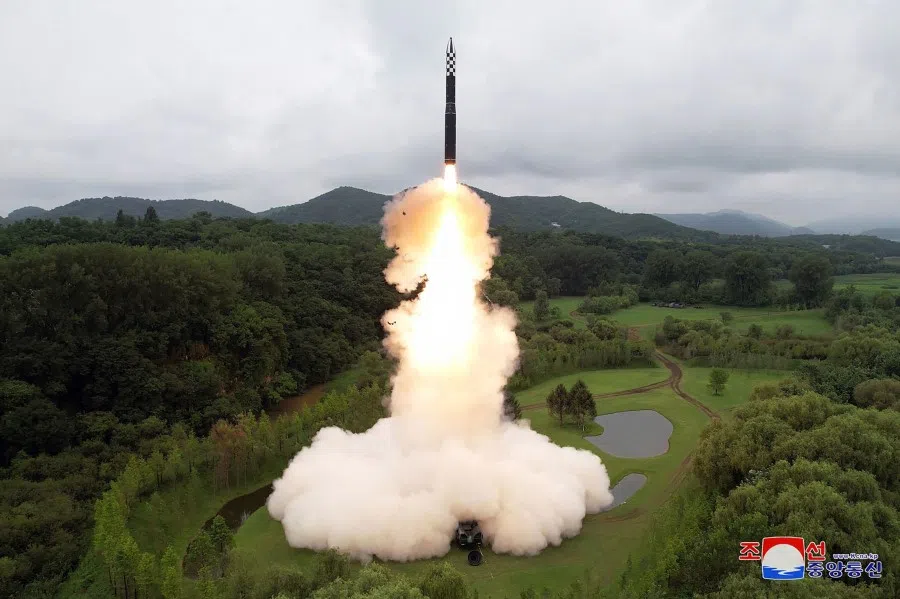
North Korea has shown not the slightest intention to give up its nuclear weapons, and continues to completely ignore South Korea's friendly overtures. It seems North Korea wants more than the lifting of sanctions and guarantees of its regime. Owning nuclear weapons has consolidated North Korea's ambition to embark on an asymmetrical relationship with South Korea. Hence, China's unilateral call for South Korea to adjust its foreign policy is to completely disregard South Korea's top priority of preserving peace.
China needs to understand that if the North Korean nuclear issue can be managed, South Korea will also be able to create room for diplomatic manoeuvring. On his recent visit to China, US Secretary of State Antony Blinken emphasised: "All members of the international community have an interest in encouraging the DPRK to act responsibly, to stop launching missiles, to start engaging on its nuclear programme. And China is in a unique position to press Pyongyang to engage in dialogue and to end its dangerous behaviour." The logic is the same.
Just as China stresses that it is not the same as before, South Korea is also no longer the same.
Eliminate double standards
During his meeting with Blinken, Xi emphasised mutual respect, and that "neither side should try to shape the other side by its own will". It is not quite appropriate for China to push all the responsibility to South Korea for the current deadlock in relations between South Korea and China.
To halt its tilt, South Korea has reiterated to China the need for mutual respect and not having double standards. If China persists with its current policy direction towards South Korea, anti-Chinese rhetoric in the country - which is already getting worse - would escalate and negatively impact efforts to improve bilateral ties. It may even lead to the scenario that China would least like to see: a South Korea that is even closer to the US, with greater three-way cooperation between South Korea, the US and Japan.
Just as China stresses that it is not the same as before, South Korea is also no longer the same. As each side clearly has a limited understanding of the other, any unilateral request that does not consider the other position is unlikely to resolve the issue.
Hopefully, both countries can work towards mutual benefit, find a new balance through dialogue, and resolve issues with wisdom. Like efforts by the US and China to reduce the dangers of misunderstandings and misjudgements, hopefully, a communications channel that does not shy away from existing differences can also be established between South Korea and China.
This article was first published in Lianhe Zaobao as "中国有必要改变对韩国立场的认识".
